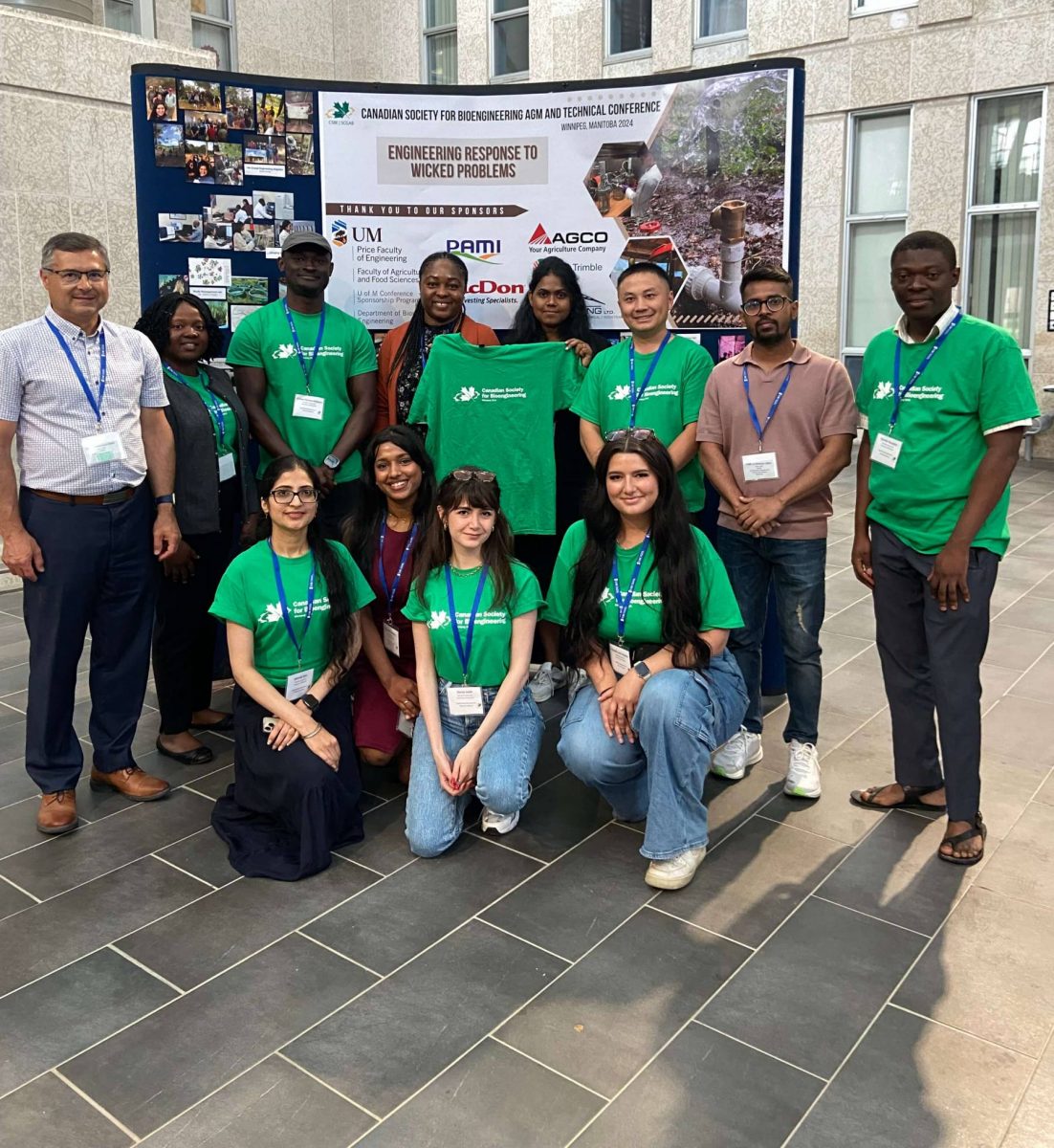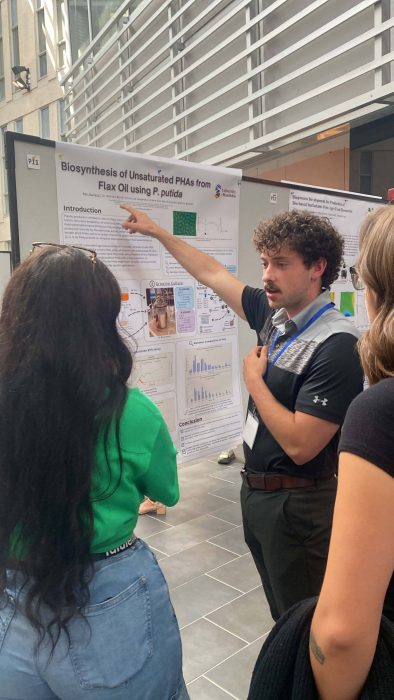
Engineering Responses to Wicked Problems
Price Faculty of Engineering hosts Canadian Society for Bioengineering conference
In July of 2024, the University of Manitoba’s Price Faculty of Engineering hosted the 2024 Annual General Meeting and Technical Conference of the Canadian Society for Bioengineering/ La Société Canadienne de Génie Agroalimentaire et de Bioingénierie (CSBE/SCGAB).
The theme of the conference, “Engineering Responses to Wicked Problems,” emphasized the difficulty of issues in our current world. It aimed to focus attendees’ on problems that are seemingly impossible to solve because of incomplete, contradictory and changing requirements. The four-day conference welcomed engineering students, researchers, academics, industry professionals and other experts in biosystems and agricultural engineering. The CSBE/SCGAB conference aimed to create discussion between these attendees in order to promote collaborative solutions to these wicked problems. Students and CSBE/SCGAB members were able to attend the conference for a reduced fee to encourage more membership and student participation.
The Price Faculty of Engineering’s own Dr. Danny Mann, PhD, P.Eng., Chair of this year’s conference, highlighted the importance of this year’s theme and why it is so important to bring biosystems engineers together. He stated, “Wicked, or extremely complex problems, are almost impossible to be solved by a single person or single disciplinary perspective. They require the input of many people and many disciplinary perspectives. There is a need to think at a “systems” level to try to understand how all of the factors fit together. I believe biosystems engineers have an advantage because the educational program already provides exposure to several disciplines; students gain some level of understanding of how different disciplines approach problem solving. It might even be said that biosystems engineers are best equipped to lead the attempts to solve wicked problems because they bring the “systems” understanding that acknowledges and appreciates the important contributions that are necessary from multiple disciplines”.
Student perspective
 Many of the attendees of the conference included undergraduate biosystems engineering students. Conferences like these can be a great opportunity for undergrads to network and find areas within the field that interest them. As biosystems engineering students must complete an undergraduate thesis as well as a capstone project in their last year, getting to meet and talk to experts in a wide variety of fields within biosystems can spark inspiration for what the student may want to do a project in, or even the area in which they may want to work or study in after graduating. Fiorella Amenta, a final year undergraduate biosystems engineering student as well as attendee and volunteer at this year’s conference, shared how the conference impacted her as a student in the field, “attending the CSBE conference was a pivotal experience that significantly broadened my understanding in bioengineering topics. Engaging with experts and fellow researchers allowed me to explore current global challenges, highlighting the critical need for interdisciplinary collaboration. Throughout the entire conference, I often found myself deeply immersed in inspiring discussions, exchanging ideas during technical sessions and poster presentations with graduate students and postdocs across Canada. I am so thrilled to have experienced my first CSBE conference at my home university, the University of Manitoba”.
Many of the attendees of the conference included undergraduate biosystems engineering students. Conferences like these can be a great opportunity for undergrads to network and find areas within the field that interest them. As biosystems engineering students must complete an undergraduate thesis as well as a capstone project in their last year, getting to meet and talk to experts in a wide variety of fields within biosystems can spark inspiration for what the student may want to do a project in, or even the area in which they may want to work or study in after graduating. Fiorella Amenta, a final year undergraduate biosystems engineering student as well as attendee and volunteer at this year’s conference, shared how the conference impacted her as a student in the field, “attending the CSBE conference was a pivotal experience that significantly broadened my understanding in bioengineering topics. Engaging with experts and fellow researchers allowed me to explore current global challenges, highlighting the critical need for interdisciplinary collaboration. Throughout the entire conference, I often found myself deeply immersed in inspiring discussions, exchanging ideas during technical sessions and poster presentations with graduate students and postdocs across Canada. I am so thrilled to have experienced my first CSBE conference at my home university, the University of Manitoba”.
Conference highlights
The conference days began with morning plenary sessions, where experts highlighted some of the wicked problems prevalent in their research. Topics included plastic pollution, healthcare engineering, sustainable agriculture, generative AI and engineering’s role in reconciliation. Attendees were able to participate in open discussions and Q & A sessions, gaining insights from the experts.
In the afternoons, biosystems and agricultural engineering researchers showcased their current work through concurrent technical sessions and poster presentations. Over 100 presenters had the opportunity to share their research, giving them the opportunity to create more conversation surrounding their passion projects with likeminded researchers.
The conference ended with a memorable award ceremony, recognizing outstanding researchers in the field. Attendees also enjoyed a city tour, as many travelled to Winnipeg from other provinces. The tour highlighted some of the city’s interesting spots including Innovation Farms, Lower Fort Garry, and The Canadian Grain Commission.
Overall, the conference was a great success, especially thanks to its sponsors and dedicated volunteers.






